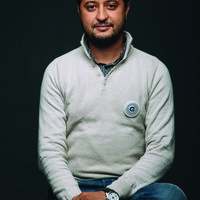Early stages of human embryogenesis, such as implantation, gastrulation, and neurulation, hold several keys for a successful pregnancy and human reproductive medicine. These early stages have remained mysterious so far, largely due to the technical and ethical challenges of harvesting and/or culturing human embryos, leaving a century-long “technological vacuum” in the field of human embryology.
To break this technological vacuum, Yue Shao and his team have pioneered in developing a series of paradigm-shifting, embryo-free technologies, which integrate stem cells and mechanical microsystems to reconstruct early human embryogenic processes in vitro, allowing scientists to look into these previously inaccessible “black boxes” for the first time.
Yue Shao was born into an educated family. Under the influence of his father, who is a professor in the field of mechanical engineering, Yue has become interested in machinery and engineering since he was a child. After graduating from the Engineering Mechanics Department of Tsinghua University, Yue decided to pursue his Ph.D. at the University of Michigan.
“Since I studied mechanical engineering before, I started to learn biological engineering from that perspective,” said Yue. “There were a lot of research possibilities for me at the beginning and stem cell-based modeling of early development was one of them.”
He and his team first proposed the disruptive concept of applying mechanical microsystems to instruct stem cells to self-organize into 3D embryo-like structures that recapitulate developmental processes during implantation and gastrulation, introducing an embryo-free future for human embryology. The "no man's land" for early embryo research and development has begun to be filled.
Yue Shao is now an Associate Professor and the Associate Director of the Institute of Biomechanics and Medical Engineering, Department of Engineering Mechanics, School of Aerospace Engineering at Tsinghua University. He believes that in order to succeed in the field of scientific research, it is important to have the ability to identify problems, process analytical thinking, acquire top-level design thinking, and courage.
For the next step, Yue Shao hopes to use a variety of engineered microenvironment technologies to improve the fidelity of synthetic embryo models, which will make embryo-free human embryology more advanced and controllable.




